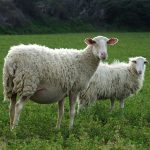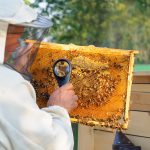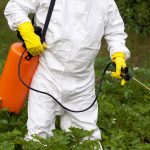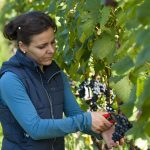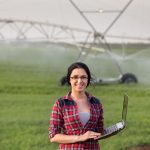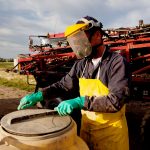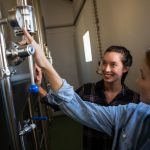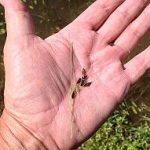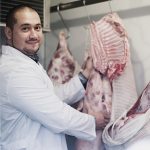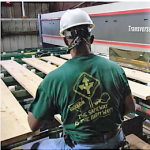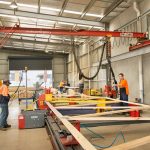The following projects are now finalised. The revised qualifications, skill sets and units of competency, that were developed as part of these projects, are published on training.gov.au and available for delivery by registered training organisations (RTOs).
The Government allocated these projects to Industry Reference Committees, based on advice in the annual IRC Skills Forecasts and Proposed Schedules of Work. On behalf of the IRCs, Skills Impact managed the projects.
Each project was established via a Case For Change approved by the Australian Industry Skills Committee (AISC), as outlined in the National Schedule. Following approval, Skills Impact and the relevant IRC took each project through a process that adhered to the 2012 Standards for Training Package Development.
For further details about the development of a specific project, please click on the links below.
Projects are listed below by IRC:
- Agriculture and Production Horticulture
- Amenity Horticulture, Landscaping, Conservation and Land Management
- Animal Care and Management
- Aquaculture and Wild Catch
- Food, Beverage and Pharmaceutical
- Forest Management and Harvesting
- Meat Processing
- Pharmaceutical Manufacturing
- Pulp and Paper Manufacturing
- Racing and Breeding
- Timber and Wood Processing
- Timber Building Solutions
Agriculture and Production Horticulture IRC
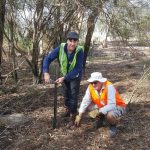
Ag & Horticulture Core Skills Project
This project reviewed core qualifications that apply to numerous job roles across the agriculture, horticulture, conservation and land management industry. They were revised to strengthen careers pathways; reflect current technology, systems and regulations; and support skills in biosecurity, environmental sustainability, quality assurance and work health and safety.
View here
Ag Biosecurity & Emergency Response Project
Skills standards for preventing and managing biosecurity issues and outbreaks have been identified and benchmarked to job roles and activities, to support industry address the biosecurity issues within Australia today, and prevent those issues of tomorrow.
View here
Ag Machinery – Safety & Technology Project
This project reviewed units of competency, skill sets and qualifications relating to the use of new technology and safety measures across a range of mobile farm machinery operations.
View here
Agronomy Project
A Diploma of Applied Agronomy has been developed to address the technical expertise required to apply agronomy practices. A skill set in digital agronomy and two units of competency in agricultural data and nutrition have also been developed, and six existing units were revised.
View here
Animal Reproduction Project
Thanks to the input of everyone involved in this project, the technical and digital skills required take advantage of new technologies for managing livestock reproduction were captured in updated qualifications and skills standards.
View here
Apiculture (Bees) Project
This project reviewed units of competency and the qualification in bee keeping so that all job functions are accurately described, with appropriate current knowledge and skill needs, particularly in relation to biosecurity, pollination and business management.
View here
Carbon & Agribusiness Management Project
New skill sets and units were developed to support a range of Carbon Farming methods including vegetation, agricultural, soil-based and savanna burning. Agribusiness qualifications, skills sets and units have been developed and revised to encompass the skills required to run a commercial farming enterprise.
View here
Crops, Pastures & Seeds Project
Farmers and seed producers are drawing on the latest technology and science in response to increasing global demand for food and fibre and changing environmental conditions. As a result of this project and consultation with industry throughout Australia, units across the seeds, crops and pastures sectors were updated and developed so that they accurately capture current industry practices and technologies.
View here
Dairy & Milk Harvesting Project
Consultation took place throughout this project to revise the current qualification and skills standards for dairy and milk harvesting, so that they better reflect modern terminology, equipment and job roles within the sector as well as supporting traditional methods.
View here
Horticulture & Nursery Project
The skills required to grow plants for human use are evolving as industry adopts new technologies, processes and operations. Qualifications and skills standards have been updated to incorporate the digital and technical skills required across the supply chain, including in the sectors of production horticulture, nursery production and retail nursery.
View here
Horticulture Technology Project
Highly precise fields like irrigation and protected horticulture, or protected cropping, are on the forefront of adopting new technology. Irrigation qualifications have been reviewed to address irrigation skills relevant across the industry, supporting the quality and sustainability of our crops. The expanding field of protected horticulture has been supported by the development of new qualifications and new and revised units.
View here

Permaculture, Organic Production & Composting Projects
Guided by industry experts, the skills standards associated with permaculture, organic farming and composting were reviewed and restructured to reflect the evolution of industry job roles and skills needs. Units for these important practices were also included throughout agriculture qualifications, as they are useful and necessary across a range of job roles and environments.
View here
Pest Management Project
This project involved a review of the Certificate III in Pest Management and its related skill sets and units of competency so that all job functions are accurately described, with the appropriate current knowledge and skills needed to support various methods, regulations and standards for trapping and eradicating pests.
View here
Pig and Poultry Farming Project
Consultation took place throughout this project to revise pork and poultry units, skill sets and qualifications, so that they incorporate current industry practices and job functions and support pathways for graduates into employment. The Certificate III in Pork Production and Certificate III in Poultry Production were both restructured so that they accurately reflect current skills nee.
View here
Medicinal Crops Project
Unique skills are required to operate within the strict regulatory framework and security requirements of the medicinal crops sector. Qualifications and skills standards have been developed to reflect the roles of individuals who work in licensed medicinal cannabis facilities as cultivation technicians, assistants and in supervisory roles.
View here
Rural Merchandising & Sales Project
Rural merchandising workers provide vital support to Australian farmers and horticulturalists, facilitating the sale of products and services to keep agricultural and horticultural businesses efficient and economically viable. The national qualification and skills standards for rural merchandising were reviewed so they are up to date with evolving products and markets.
View here
Viticulture Project
The Diploma of Viticulture has been revised to meet the needs of all commercial grape producers in Australia, ensuring representation of skills relating to grapes grown for eating as well as for wine. The review has also focused on how to support the planning and implementation of biosecurity measures through skills in leadership and management.
View here
Water Allocation & Entitlement Skills Project
Access to water resources is vital to Australian farmers and it is equally vital that farming communities understand the water market. Consultation took place throughout this project to develop three units and two skill sets for farmers and those with water entitlements to effectively navigate Australian water markets.
View here
Amenity Horticulture, Landscaping, Conservation & Land Management IRC
Ag Chemical Handling Project
This project reviewed units of competency and skill sets for chemical handling, to reflect current industry skills standards and practices, so that all job functions are accurately described.
View here
Arboriculture Project
Qualifications and skills standards were reviewed to offer improved accessibility and entry requirements and more accurately reflect job roles, to support future learners in a career caring for and managing trees.
View here
Conservation & Land Management Project
Conservation and Ecosystem Management is a large and complex sector responsible for caring for Australia’s unique flora and fauna. This project reviewed and updated qualifications and units related to this work, across the sub-sectors of lands, parks and wildlife; natural area restoration; conservation earthworks and pest management.
View here
Green Walls & Rooftop Gardens Project
Green infrastructure offers many benefits for city residents, helping to cool our cities, manage storm water and improve air quality. The unique skills required to design, construct and maintain green infrastructure have been captured in five units and three skill sets.
View here
Landscaping Project
Thanks to the input of those involved in this project, skills standards for work in landscaping were revised to more accurately describe job functions and the range of tasks that landscapers are required to perform, as well as to incorporate the latest technologies, equipment, regulations and consumer trends.
View here

Parks & Gardens Project
As part of this project, the Certificates II and III in Parks and Gardens were updated to support strong pathways into the industry. Units of competency for working in parks and gardens were revised to reflect current terminology, equipment, work practices (including sustainable use of materials), and workplace health and safety requirements.
View here

Respect for Country Job Skills
Led by Aboriginal and Torres Strait Islander project partners, the qualifications, skill sets and units for caring for and maintaining Country have been updated, so that culture, skills and knowledge are better reflected; so that integrity is retained in the units; and so that the unique nature of looking after Country for each community is recognised.
View here
Skills for Land Rehabilitation (Mined Land) Project
This project addressed the need for national skills standards for the rehabilitation of land that has been used for mining, resulting the development of four skill sets and a ‘rehabilitation of mined land’ specialisation in the Certificate III in Conservation and Ecosystem Management.
View here
Sports Turf Management Project
Sports turf management qualifications have been strengthened to reflect skills needed at all levels – including volunteers, apprentices, tradespeople, managers and consultants. Sports Turf Management is a highly specialised sector, responsible for the upkeep of many types of grassed sports grounds, each requiring unique skills and knowledge.
View here
Animal Care and Management IRC
Animal Incident Management Project
Experts in animal incident management have contributed to a review of the Certificate IV in Animal Control and Regulation. As a result, a number of new units and skill sets were developed to support the skills needed to participate safely in the rescue of animals.
View here
Animal Technology Project
Qualifications relating to the care and welfare of laboratory animals have been reviewed to reflect changes in technology and to support the ethical treatment of animals according to relevant guidelines.
View here
Equine Safety in Training Project
This project reviewed and updated the qualifications, skill sets and units to incorporate safe work practices for improved safety, quality and consistency in the delivery of equine training.
View here
Exhibited Animal Care & Marine Wildlife Project
This project covered two distinct areas of animal care that both play a vital role in supporting the health, welfare and sustainability of some of our most vulnerable animals and wildlife. The skills standards for working with exhibited animals and for managing marine wildlife incidents were reviewed and updated to match industry needs.
View here
Farriery Project
This project reviewed and updated the Farriery qualification and units of competency to accurately reflect job functions, with appropriate current knowledge and skill needs. It also developed a new qualification for Barefoot Trimmers.
View here
Horse Care Project
As part of this project, updates were made to qualifications and skills standards across a broad range of professions involved in caring for horses. They were revised to support skills in safety, to capture the breadth of skills required for those who work alongside horses, and to support flexibility of delivery and career pathways.
View here
Horse Education Project
Stakeholders with expertise in communicating with and training horses have contributed to this project to review units in horse education. The review has addressed various skills for educating horses, from basic handling skills, to interpreting equine behaviour, transporting horses and educating horses to be ridden and driven. One unit relating to the microchipping of cats and dogs has been reviewed alongside this project.
View here
Pet Care & Animal Training Project
The project involved the review of four separate, but related, industry sectors covered by the ACM Animal Care and Management Training Package, including General Animal Studies, Companion Animals, Pet Grooming, and Animal Control and Regulation.
View here
Small Companion Animal Incident Management Project
The bushfire events of 2019-20 underlined the need for national skills standards to be developed to support the coordinated effort required to care for small companion animals during incidents. As a result of this project, seven units and four skills sets have been developed for this work and one unit reviewed.
View here
Trainers of Assistance Dogs Project
Growing evidence for how assistance animals can improve the quality of life for people with impairments and disabilities is driving demand for more skilled trainers of assistance dogs. Consultation took place throughout this project to develop five units and two skill sets covering the skills required to prepare assistance dogs and prospective handlers for a broad range of purposes.
View here
Veterinary Nursing Project
Veterinary nursing units of competency and qualifications were reviewed and updated to reflect the current occupational skill standards and needs of industry.
View here
Work Safely Around Animals (Infection Control)
This project reviewed specific animal care units of competency so infection control outcomes reflect the needs of workers in the industry.
View here
Aquaculture and Wild Catch IRC
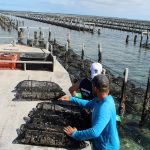
Aquaculture, Fishing Operations & Biosecurity Project
Working concurrently with the Seafood Post Harvest Project, this project reviewed qualifications, skill sets and units of competency so that all job functions are accurately described, with appropriate current knowledge and skill needs. A focus of this project was incorporating skills to address changes in technology, legislative and regulatory requirements and environmental sustainability and management.
View here

© Image: Department of Primary Industries and Regional Development
Fisheries Compliance Project
Fisheries compliance qualifications and units of competency were reviewed to address the growing compliance requirements in the seafood industry. Advancements in technology and environmental sustainability and management were also considered.
View here
Fishtech & Aquabotics Project
This project reviewed relevant units of competency so that they relate to new emerging technologies in fishtech and aquabotics, particularly real-time distant operations. Units and skill sets were also developed to capture current skills needs.
View here

Seafood Post Harvest Project
Working concurrently with the Aquaculture, Fishing Operations & Biosecurity Project, this project reviewed qualifications, skill sets and units of competency so that all job functions are accurately described, with appropriate current knowledge and skill needs. A focus of this project was to address changes in distribution, processing, storage, fishing and environmental management.
View here
Work with Crocodiles Project
This project addressed the need for accessible skills standards for working with crocodiles across all settings, to promote safe and sustainable practices. A qualification, eight skill sets and 11 units were developed as a result.
View here
Food, Beverage and Pharmaceutical IRC
Advanced Wine Operations Skills Project
Units of competency were developed to include the coordination and leadership skills that are required of people working in cellar operations and bottling and packaging. The units are included in a revised Certificate III in Wine Industry Operations and two new skill sets.
View here
Artisanal Food & Beverage Processing Project
This project captured skills standards for the hands-on tasks required in producing artisan food and beverages such as cheese, olives, fermented foods and beverages. Industry drove the development of two new qualifications, Certificate IV in Artisan Fermented Products and Diploma of Artisan Cheesemaking, along with nine new skill sets and 27 units.
View here

Australian Native and Bush Food Project
Consultation took place throughout this project to describe the skills required for working with Australian native and bush foods. Three skill sets and one unit were developed to capture the skills required across the supply chain, including sourcing and harvesting bush and native plants, preparing products for sale, and setting up a business in the sector and source and harvest .
View here
Flour Milling Project
A milling specialisation was developed within the Certificate III in Food Processing as part of this project, in order to support the highly technical and sought-after skills involved in flour milling.
View here
Food & Beverage Manufacturing – Cross Sector Project
This project reviewed 38 cross-sector units of competency that apply across multiple qualifications in the FBP Food, Beverage and Pharmaceutical Training Package, to reflect current knowledge, skill requirements and industry practice.
View here
Food & Beverage Processing Project
Some of the most used food and beverage qualifications were reviewed to address an increasingly automated work environment, advances in traceability, shifts in consumer trends and changing regulations.
View here
Food Science and Technology Project
This project reviewed food technology qualifications and units of competency so that all job functions are accurately described, with appropriate current knowledge and skill needs and aligned with current and rigorous regulations on food and beverage product safety.
View here
High Volume Production Baking Project
This project involved a review of the Certificate III in Plant Baking to determine how to best capture the skills standards for this sector. The qualification was revised and renamed the Certificate III in High Volume Baking and incorporates units covering skills and knowledge across all four sub sectors (pastry, cakes, biscuits and bread) to allow flexibility and movement within the industry.
View here
Retail Baking Review Project
This project reviewed and updated the qualifications, skill sets and units to incorporate current occupational skill standards and needs of industry.
View here
Rice Processing Project
This project updated and revised the Certificate III in Rice Processing and 13 rice processing units to meet industry’s skill needs and requirements. They were transferred from the ZRG05 Ricegrowers’ Co-operative Limited Enterprise Training Package to the FDF Food Processing Training Package.
View here

Sugar Milling Project
Consultation took place as part of this project to consider how the skills standards for sugar milling could be reconfigured to reflect industry requirements and be more accessible for training providers to deliver. As the project moved into the development stage, feedback from industry indicated that delivery of formal training using the national qualifications, skill set and units of competency was not likely in the future. Industry determined that the review should not continue and this was confirmed by the Department of Education Skills and Employment (DESE).
View here
Wine Operations Project
This project reviewed wine industry qualifications and units of competency to reflect changing industry skills requirements, especially in the area of technology.
View here
Forest Management and Harvesting IRC

Entry Level Forestry Skills Project
Qualifications, units of competency and skill sets for entry level forestry roles were reviewed and redesigned as part of this project. As a result, industry has access to updated national entry level qualifications that better support learners’ career paths and reflect practical skills.
View here
Forest Harvesting Optimisation Project
Two new units were developed for the use of on-board optimisation systems and computers in mechanical harvesting. Ten existing units were also updated to reflect technological change and to incorporate best practice principles in forest harvest operations.
View here

High-Level Forestry Skills Project
Consultation took place throughout this project to review and redesign skills standards and qualifications for high level job roles in forestry, including the specialist skills to supervise, plan and manage production forests and commercial plantations sustainably.
View here
New Timber Harvesting Technologies Project
As new technologies provide ways to make forestry work more productive, sustainable and safe, updated skills are needed for a range of job roles and tasks. These updated technical and digital skills have been captured in the review and development of units of competency for the harvesting sector.
View here

Remote Forestry Operations Project
As part of this project, one skill set and two new units were developed to address the need for specialised safety skills for remote operations, including mental health awareness and first aid.
View here
Responding and Assisting in Bushfires Project
Consultation took place throughout this project to develop units for efficiently communicating during post-bushfire vegetation clearing and clean-up operations and assessing the hazard and health of fire-affected or fire-damaged trees. Industry was also consulted on the revision of four units for chainsaw operations.
View here
Meat IRC
Animal Welfare (Meat) Project
This project reviewed and updated the Certificate II in meat processing, developed one new skill set for an animal welfare officer and developed four new units of competency for meat processing. Ten poultry units of competency were also reviewed and updated and migrated from the FDF10 Food Processing Training Package to the AMP Australian Meat Processing Training Package.
View here
Diploma & Advanced Diploma in Meat Processing Project
This project focused on a review of the Diploma of Meat Processing, the Diploma of Meat Processing (Meat Retailing) and the Advanced Diploma of Meat Processing, to capture the updated skills required for roles in managing and supervising within the meat processing industry.

Game Harvesting Auditing Project
A skill set and unit of competency have been developed to describe the skills required to audit and inspect depots that transport game meat from the harvester to the processor, to support compliance with biosecurity and food safety regulations.
View here
Halal Meat Processing Project
The specialist skills required for halal meat processing have been escribed in a national skill set and two units of competency, to support industry as it moves towards a single consistent certification system.
View here
Meat Processing Project
Industry has developed processes to protect the quality of meat products, from contaminants, pests and food fraud. The skills and knowledge to support some of these systems and processes were reviewed as part of this project and embedded in units of competency and skill sets, across eight different industry areas.
View here
Meat Processing, General, Quality and Safety Skills Project
Consultation took place throughout this project to review qualifications and skills standards that support core skills in safety, quality assurance, and leadership for the meat processing industry. Qualifications, skill sets and units were updated to reflect changes to currency/regulatory standards, remove duplication across the training package, improve deliverability, and to bring them in line with the current Standards for Training Packages 2012.
View here
Meat Rendering Project
Consultation took place throughout this project to define the updated skills required to perform rendering and pre-rendering processes, including the expertise to work with the more recent equipment, terminology and processes.
View here
Meat Slicing Project
Industry volunteers gave their time and expertise to this project to address the need for a unit for using meat slicing equipment in a retail butcher setting, as well as more broadly in the meat and food and beverage processing industries.
View here
Poultry Processing Project
To keep up with the growing demand for poultry meat in Australia, automation has been increasing throughout the entire processing line. Ten skill sets and four units of competency were developed to escribe the skills required for working with automated processes and equipment.
View here
Pharmaceutical Manufacturing IRC

COVID-19 Critical Response Project
A skill set to support the pharmaceutical industry in their urgent response to the COVID-19 health crisis was developed,. It describes the foundation skills and knowledge required by workers entering the pharmaceutical manufacturing industry, especially those employed to work with bioprocessed products, such as vaccines and antibody testing devices.
View here
Pharmaceutical Bioprocessing
Many life-saving and enhancing medical treatments are made using pharmaceutical bioprocessing techniques. The skills for manufacturers producing and distributing products made using these techniques have been outlined in nine units of competency.
View here

Pharmaceutical GMP Project
Consultation took place throughout this project to update national skills standards for pharmaceutical GMP, so that they better reflect industry needs, reflect actual job tasks undertaken by graduates and present fewer barriers in deliverability. This will allow current and future learners to gain the skills they require to produce safe and effective pharmaceuticals for the Australian public.
View here
Pharmaceutical Manufacturing Standards Project
Pharmaceutical manufacturing industry qualifications and units of competency were reviewed to reflect current skills standards and practices and to align them to the skills required to apply Good Manufacturing Practice (GMP) principles and procedures.
View here
Pulp and Paper Manufacturing IRC
Pulp and Paper Manufacturing Review Project
A full review of all pulp and paper manufacturing qualifications and skills standards was undertaken as part of this project, so current job roles, new technologies and processes and the current regulatory environment are reflected. This review also took steps to improve the usability of the training package and accessibility of training.
View here
Pulp and Paper Manufacturing Safety Compliance Project
This project reviewed pulp and paper units of competency with regard to workplace health and safety requirements, including major hazard facilities. There are many and varied health and safety risks and hazards pertaining to pulp and paper manufacturing sites, including hazardous chemical use, extreme heat and steam, and use of large machinery.
View here
Racing and Breeding IRC

Greyhound Health Assistance Services Project
The skills and knowledge requirements for Greyhound Health Assistants, administering complementary non-invasive therapies to greyhounds, have been documented within a specialisation within the Certificate IV in Greyhound Racing Industry as well as a specific Greyhound Health Assistant Skill Set.
View here
Greyhounds Project (animal welfare and racing integrity)
This project reviewed and updated the qualifications, skill sets and units to incorporate current racing integrity and animal welfare practices.
View here
Greyhound Racing Careers and Jockeys Project
This project reviewed and updated the Certificate II in Racing Industry and The Certificate IV in Racing (Jockey) to support current industry skills needs and improve improve training delivery.
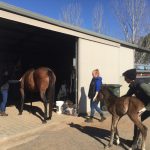
Horse Breeding Skills Project
The horse breeding sector is intrinsically linked to the racing sector. As such, this project has focused on revising breeding qualifications to ensure they are suitable for all kinds of breeding, including thoroughbred and standardbred horses.
View here
Racing Project
This project reviewed and updated racing industry qualifications, skill sets and units to incorporate safety requirements as well as the current occupational skill standards and needs of industry. This project is an extension of the Equine Safety in Training Project.
View here

Retraining Horses & Greyhounds to New Environments Project
This project has developed and revised qualifications and skills standards to support the work of retraining horses and greyhounds moving into domestic, equestrian, recreational or farm environments.
View here
Timber and Wood Processing IRC
Advances in Woodmachining & Sawdoctoring Project
Technological advancements and market demands have had a significant impact on how wood machinists and saw technicians perform their job. Qualifications, skills sets and units were developed and updated to reflect current practices, equipment and terminology.
View here
Cross Laminated Timber Building Systems Project
This project reviewed and updated units of competency relating to cross-laminated timber (CLT) and Glulam production, to incorporate the skills and knowledge that is required to operate machinery, so all job functions are accurately described.
View here
Sawmill Timber & Process Optimisation Project
Units have been developed and revised to support production efficiencies in sawmill, including the use of optimisation software to process information from a range of scanning technologies.
View here
Sawmilling and Timber Processing Project
Thanks to the contributions of everyone involved in this project, qualifications, skill sets and units of competency for timber and wood production were redeveloped to be more flexible in structure and reflect the practical skills required.
View here
Timber Building Solutions IRC
Prefabricated Building Systems Project
This project reviewed and updated units of competency for timber truss and frame design and manufacture to reflect emerging industry skill requirements, including prefabrication of panelised building systems, so that all job functions are accurately described.
View here
Timber Merchandising Project
The expert skills and knowledge required for work in timber merchandising have been incorporated in updated qualifications and skills standards, supporting this essential step in the supply chain.
View here
Timber Truss & Frame Estimating & Design Project
The technical skills required for both the design and manufacture of timber trusses and frames have been incorporated in national qualifications and skills standards.
View here
Cross Sector Projects
Many of the skills most valued by industry apply in multiple sectors of Australia’s economy. The AISC identified cross-sector skills areas where opportunities exist to create flexible and transferable units of competency, skill sets and qualifications that will benefit industry, learners and the broader VET sector.
Environmental Sustainability Skills Project
Australia’s transition toward a more environmentally sustainable society is being driven by political, economic, social and environmental imperatives. The transition brings challenges for the vocational education and training system to ensure the workforce is equipped with the skills required for new, and more sustainable, ways of working. An Environmental Sustainability Expert Panel was convened by the AISC to provide advice to the AISC.
View here
Environmental Sustainability Skills Case for Change
This project identified skills needs that are shared by multiple industry sectors in relation to environmentally sustainable products, manufacturing, whole of life cycle management and sustainable energy production. A Case for Change was generated, including recommendations for the development and modification of relevant units of competency, skill sets and qualifications.
View here
Automation Skills Case for Change
This project identified skills needs that are shared by multiple industry sectors in relation to automated processes. A Case for Change was generated, including recommendations for the development and modification of relevant units of competency, skill sets and qualifications.
View here
Other Cross Sector Projects
The Australian Industry Skills Committee (AISC) identified six other across-industry projects, which were managed by other government-appointed Skills Service Organisations. These projects examined the workforce skilling implications of:
- Big data skills – visit PwC Skills for Australia for more information
- Coding skills – visit IBSA Manufacturing for more information
- Consumer engagement through social and online media – visit Skills IQ for more information
- Cyber security – visit PwC Skills for Australia for more information
- Supply chain skills – visit Australian Industry Standards for more information
- Team work and communication – visit PwC Skills for Australia for more information




